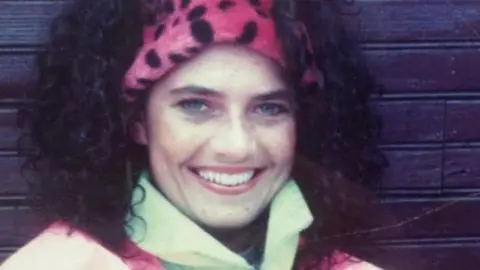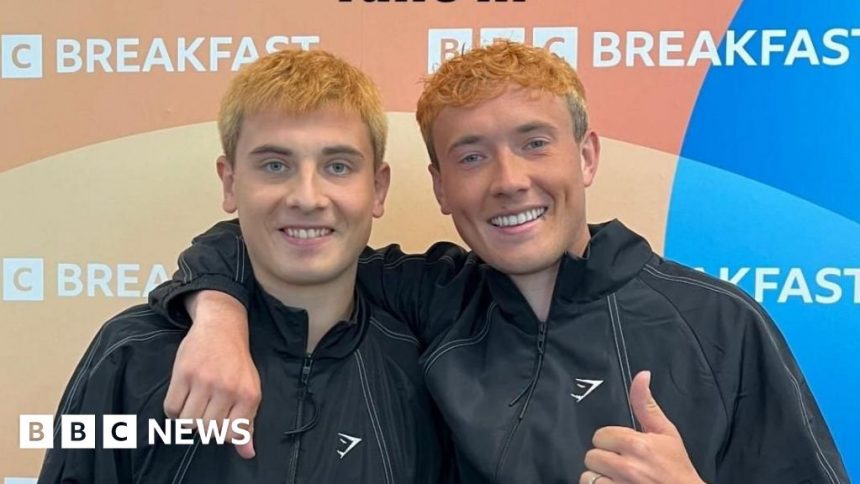‘We might only have 15 summers left,’ say brothers at risk of dementia
 jord_adams
jord_adamsTwo brothers who say their “time is short” because of a rare faulty gene that puts them at risk of dying young with dementia are running the length of the UK.
Jordan, 28, and Cian Adams, 23, both have a gene that can lead to frontotemporal dementia (FTD) – like their mum, grandmother and aunt.
“We might have 15 or 20 healthy summers left,” the brothers told BBC Breakfast, adding they hope to “raise as much awareness as we can in that time”.
The pair hope their 903-mile (1453km) challenge from John O’Groats to Land’s End will play a part in “finding a cure for dementia”.
FTD is an uncommon type of dementia that causes problems with behaviour, memory, and language, according to the NHS.
In 2010, the brothers learned their mother, Geraldine, only had a limited time left to live because of the condition.
The siblings, from Redditch, discovered they carried it after their mother died in 2016 aged just 52. They made the decision to get tested for the gene, saying it gave them a “great onus on living a more meaningful life”.
Jordan said his family had been “completely devastated” after losing their mum, aunt and grandmother to dementia.
“Ultimately there’s no cure for dementia… unless we do something about it we are going to lose our lives at a much younger age,” he told BBC Breakfast.
Jordan and Cian, who go by “the FTD brothers” on social media, hoped to raise £100,000 from the challenge and have set themselves a target of raising £1million in their lifetimes.
Since appearing on the BBC Breakfast sofa on Wednesday morning, the pair’s JustGiving page has exceeded £110,000.
Jordan has done the equivalent of 17 back-to-back ultramarathons so far on the run, which is now at just over the halfway point.
Running at least 30 miles a day, they told BBC Breakfast that they expect to make it to Land’s End on 1 October.
 Jordan and Cian Adams
Jordan and Cian AdamsThey have been inundated with well-wishers throughout their journey so far, with many people sharing touching personal stories of their experiences with dementia.
The brothers also say they want to take away the association that dementia is just “a normal part of ageing” and hope that, through fundraising, “[dementia] is something that we can cure”.
“We are determined to be part of the movement that finds a cure for dementia,” they told the Alzheimer’s Research UK charity previously.
 Jordan Adams
Jordan Adams






